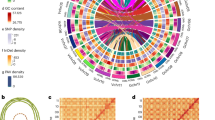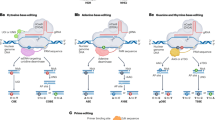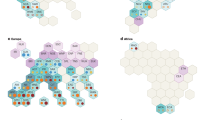Abstract
VARIETIES of wheat can differ in yield of grain even when unfavourable factors such as disease, unsuitable soil nutrient status and lodging are eliminated as completely as possible. Methods of breeding for high yield could be made more objective if the physiological processes responsible for the yield differences were understood. There are two possibilities. First the assimilative capacity of the plant after anthesis may be the principal limiting factor, or secondly, the grain may be a limited sink for photosynthates, either as a result of its rate of growth or its ultimate size.
This is a preview of subscription content, access via your institution
Access options
Subscribe to this journal
Receive 51 print issues and online access
$199.00 per year
only $3.90 per issue
Buy this article
- Purchase on Springer Link
- Instant access to full article PDF
Prices may be subject to local taxes which are calculated during checkout
Similar content being viewed by others
References
Thorne, G. N., Rep. Rothamsted Exp. Sta. (1960).
Miller, E. C., Gries, G. A., Lunsford, W. A., and Frazier, J. C., Tech. Bull., 62, Kansas State Coll. Agric. (1948).
Author information
Authors and Affiliations
Rights and permissions
About this article
Cite this article
BINGHAM, J. Paternal Effect on Grain Size in Wheat. Nature 209, 940–941 (1966). https://doi.org/10.1038/209940b0
Issue Date:
DOI: https://doi.org/10.1038/209940b0
This article is cited by
-
Maternal, paternal, additive, and dominance components of variance in Gerbera
Theoretical and Applied Genetics (1991)
-
Genotypic effects of the maternal tissues of wheat on its grain weight
Theoretical and Applied Genetics (1980)
-
Effect of assimilate utilization on photosynthetic rate in wheat
Planta (1967)
Comments
By submitting a comment you agree to abide by our Terms and Community Guidelines. If you find something abusive or that does not comply with our terms or guidelines please flag it as inappropriate.



